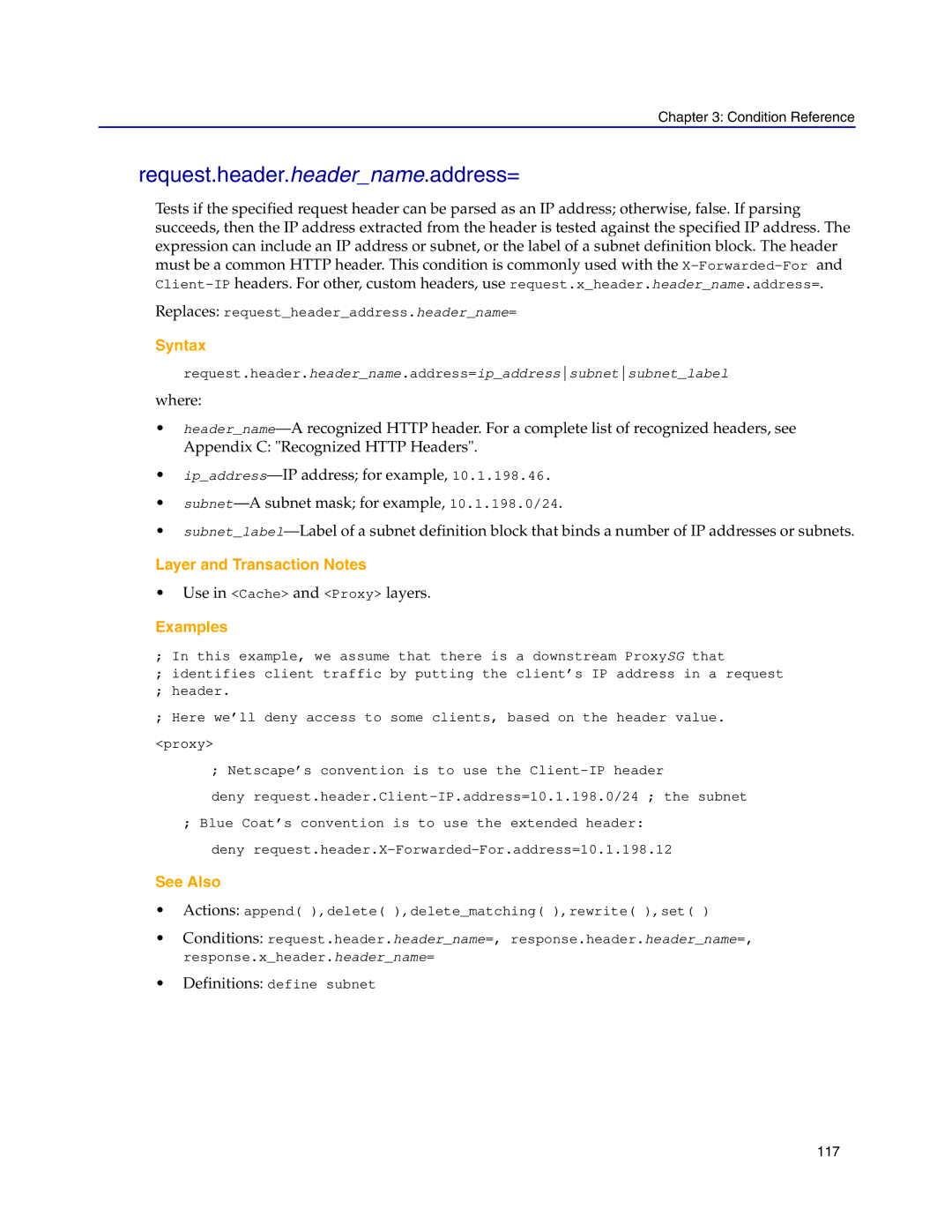Chapter 3: Condition Reference
request.header.header_name.address=
Tests if the specified request header can be parsed as an IP address; otherwise, false. If parsing succeeds, then the IP address extracted from the header is tested against the specified IP address. The expression can include an IP address or subnet, or the label of a subnet definition block. The header must be a common HTTP header. This condition is commonly used with the
Replaces: request_header_address.header_name=
Syntax
request.header.header_name.address=ip_addresssubnetsubnet_label
where:
•
•
•
•
Layer and Transaction Notes
•Use in <Cache> and <Proxy> layers.
Examples
;In this example, we assume that there is a downstream ProxySG that
;identifies client traffic by putting the client’s IP address in a request
;header.
;Here we’ll deny access to some clients, based on the header value. <proxy>
; Netscape’s convention is to use the
deny
;Blue Coat’s convention is to use the extended header: deny
See Also
•Actions: append( ), delete( ), delete_matching( ), rewrite( ), set( )
•Conditions: request.header.header_name=, response.header.header_name=, response.x_header.header_name=
•Definitions: define subnet
117
